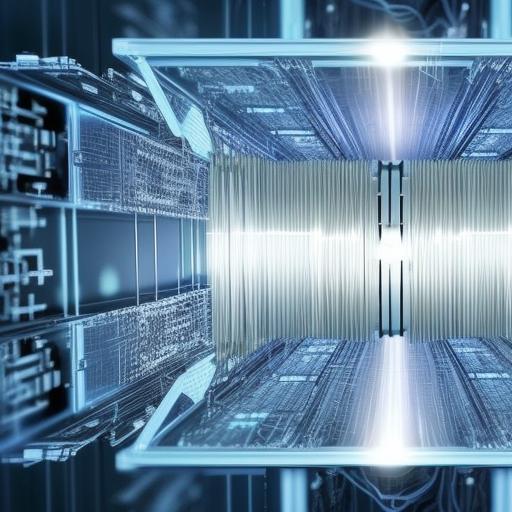Introduction
Quantum computing has the potential to revolutionize the way we think about computing, as it allows for exponentially faster calculations than classical computers can perform. This power is enabled by something called ‘magic states’, which are the cornerstone of quantum computing. In this blog post, we will explore the key role that magic states play in quantum computing and how they allow for the amazing feats that quantum computers can do.
What are Magic States?
Magic states are particular states of qubits, the basic building blocks of quantum computing, that are able to store and process information. By utilizing these special states, quantum computers can perform calculations that classical computers can’t because they are able to exist in multiple states at once and be manipulated in ways that classical computers can’t. Magic states also enable quantum computers to manipulate and store large amounts of data in a much more compact form than classical computers.
How do Magic States Work?
Magic states work by taking advantage of the quantum properties of qubits. These properties, such as superposition and entanglement, allow qubits to exist in multiple states at once and be manipulated in ways that classical computers cannot. For example, a qubit in a superposition state can represent more than one value at the same time, which allows for more efficient manipulation of large amounts of data.
Types of Magic States
There are three main types of magic states used in quantum computing: the Bell state, the GHZ state, and the cluster state.
The Bell state is a two-qubit magic state created by entangling two particles together. This allows quantum computers to perform quantum teleportation, which is a process of transmitting quantum information from one location to another.
The GHZ state is a three-qubit magic state created by entangling three particles together. It enables quantum computers to perform quantum algorithms with unprecedented speed and accuracy.
Finally, the cluster state is an n-qubit magic state that consists of a system of entangled particles scattered throughout space. This type of magic state can be used to solve complex problems in quantum computing applications like quantum error correction, quantum simulators, and quantum network architectures.

In order for quantum computers to reach their full potential, magic states must be maintained in their purest form possible—otherwise known as "noiseless" quantum states. This is a difficult task that requires intense amounts of computing power and energy, but it’s essential for quantum computers to perform their most powerful calculations. With the right quantum hardware and software, quantum computers can push the boundaries of what we thought was previously possible!
Magic states are an essential part of quantum computing, and they have the potential to revolutionize countless industries by providing us with unprecedented speed and accuracy in data processing. As quantum technology continues to develop, so will our understanding of magic states—and hopefully unlock even more incredible possibilities for quantum computers!
Applications of Magic States
The applications of magic states are vast. They are used to enable fast and efficient calculations, such as factorization and searching large databases. Magic states also enable the development of quantum algorithms, which can be used to solve complex problems that classical computers can’t. Additionally, magic states can be used in quantum cryptography, where they provide an extra layer of security.
Here are 5 applications of magic states:
- Quantum error correction: Magic states can be used to correct errors that occur during quantum computation by encoding logical qubits in a larger number of physical qubits.
- Universal quantum computation: Magic states can be used to perform universal quantum computation, which is the ability to perform any quantum algorithm using a set of basic operations.
- Quantum teleportation: Magic states can be used to enable quantum teleportation, which is the ability to transfer a quantum state from one location to another without physically moving the qubits.
- Quantum fault tolerance: Magic states can be used to make quantum computation more robust against noise and errors by using multiple physical qubits to store and process the same logical qubit.
- Quantum cryptography: Magic states can be used to enhance the security of quantum key distribution (QKD) by providing a more secure way to share secret keys between two parties.
Conclusion
Magic states are an essential part of quantum computing and are what enable quantum computers to do things or run the complex calculations that classical computers can’t. By taking advantage of the unique properties of qubits, magic states allow quantum computers to store and manipulate large amounts of data in a much more efficient way than classical computers. This makes them invaluable for a variety of applications, from solving complex problems to providing an extra layer of security.






